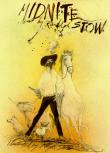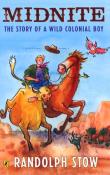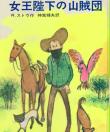'Our lives are made up of different arcs—love, family, politics, geography, time and dislocation among them. One of the arcs that has exercised me most is my wondering about post-colonising Australia and its myths and mythmaking propensities, also about my family’s.
'Although my childhood was spent mostly in Melbourne, it was punctuated by our frequent pilgrimages to the promised land (aka South Australia) and inflected by the awareness that Melbourne was exile to my South Australian mother—feelings I do not share. She often reminded us of our ‘free settler’ heritage, and of our roots in the colonial era, no more than a blink of time ago in the face of 50,000 or more years of Aboriginal occupation; my horror has only grown with the intervening years.
'We loved South Australia for our own reasons: for heat, our peerless great-grandmother, wild freedom and the beach. But an awareness of myth, of the stories we tell and the ways we frame present and past, was kindled. If there is an arc in this selection, it is that the postcolonial Australia that I first began to think about as a child—if only at the edges of my mind—is a myth. It always has been.' (Introduction)
 6520603376777391760.jpg
6520603376777391760.jpg
 Midnite : The Story of a Wild Colonial Boy
single work
children's
historical fiction
satire
humour
Midnite : The Story of a Wild Colonial Boy
single work
children's
historical fiction
satire
humour





